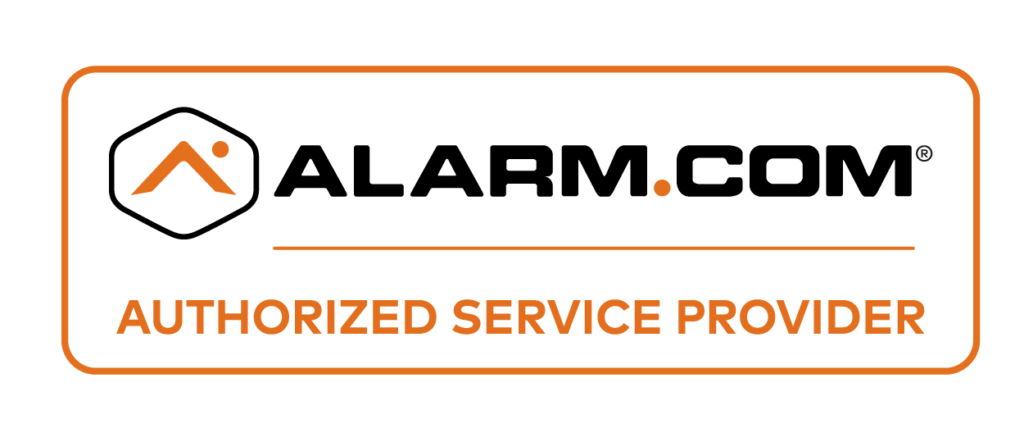Fire safety education is of utmost importance in today’s society. Fires can cause devastating damage to homes and businesses, resulting in loss of property and even loss of life. By educating ourselves and others about fire safety, we can prevent fires from occurring and minimize the damage they cause. In this article, we will explore the importance of fire safety education, common causes of fires in homes and businesses, fire safety regulations and codes, identifying fire hazards and developing fire safety plans, fire safety equipment and tools, fire prevention strategies, emergency response planning and evacuation procedures, fire safety training for employees and family members, fire safety education for children and students, and available resources and support for home and business owners.
Key Takeaways
- Fire safety education is crucial for preventing fires and minimizing damage.
- Common causes of fires in homes and businesses include cooking, electrical malfunctions, and smoking.
- Home and business owners must follow fire safety regulations and codes to ensure their properties are safe.
- Identifying fire hazards and developing fire safety plans can help prevent fires and minimize damage.
- Fire safety equipment and tools, such as smoke detectors and fire extinguishers, are essential for home and business owners to have on hand.
Understanding the Importance of Fire Safety Education
Fire safety education is crucial for both home and business owners. In homes, fires can start from various sources such as cooking accidents, electrical malfunctions, or careless handling of flammable materials. By educating ourselves about fire safety measures, we can prevent these accidents from happening. For business owners, fire safety education is essential to protect their employees and customers. It is their responsibility to ensure that their premises are safe from fire hazards and that everyone knows how to respond in case of a fire emergency.
The benefits of fire safety education are numerous. Firstly, it helps to prevent fires from occurring in the first place. By understanding the common causes of fires and taking necessary precautions, we can significantly reduce the risk of a fire breaking out. Secondly, fire safety education equips individuals with the knowledge and skills to respond effectively in case of a fire emergency. This includes knowing how to use fire extinguishers, evacuate safely, and provide first aid if needed. Lastly, fire safety education promotes a culture of safety within homes and businesses. When everyone is aware of the importance of fire safety and takes it seriously, the overall risk of fires decreases.
Common Causes of Fires in Homes and Businesses
Fires can occur due to a variety of reasons, and it is important to be aware of the common causes in order to prevent them. In homes, cooking accidents are one of the leading causes of fires. Leaving a stove unattended or using flammable materials near an open flame can easily lead to a fire. Electrical malfunctions, such as faulty wiring or overloaded circuits, are another common cause of fires in homes. It is important to have regular electrical inspections and ensure that all electrical appliances are used safely.
In businesses, fires can be caused by similar factors as in homes, but there are additional risks to consider. For example, businesses that deal with flammable materials or chemicals need to have proper storage and handling procedures in place to prevent fires. Additionally, businesses with large machinery or equipment need to ensure that they are properly maintained and do not pose a fire hazard.
To prevent fires from occurring, it is important to take necessary precautions. This includes installing smoke detectors in every room of the house or business, regularly checking and maintaining electrical systems, keeping flammable materials away from heat sources, and having fire extinguishers readily available. It is also important to educate everyone in the household or workplace about fire safety measures and ensure that they know how to respond in case of a fire emergency.
Fire Safety Regulations and Codes for Home and Business Owners
Fire safety regulations and codes exist to ensure that homes and businesses meet certain safety standards. These regulations vary depending on the location and type of property, but they generally cover areas such as building construction, fire prevention measures, emergency exits, and fire suppression systems.
For home owners, it is important to familiarize themselves with the local fire safety regulations and codes. This may include requirements for smoke detectors, fire extinguishers, and emergency exits. It is also important to regularly inspect and maintain these safety measures to ensure they are functioning properly.
Business owners have a greater responsibility when it comes to fire safety regulations and codes. They are required to have fire safety plans in place, conduct regular fire drills, and provide training to employees on fire safety procedures. Additionally, businesses may be required to have fire suppression systems such as sprinklers or fire alarms installed.
To comply with fire safety regulations and codes, home and business owners should consult with local authorities or fire departments to understand the specific requirements for their property. It is also important to stay updated on any changes or updates to these regulations to ensure ongoing compliance.
Identifying Fire Hazards and Developing Fire Safety Plans
Identifying fire hazards is an important step in preventing fires from occurring. In homes, common fire hazards include faulty electrical wiring, overloaded power outlets, flammable materials near heat sources, and unattended candles or stoves. By conducting a thorough inspection of the property, home owners can identify potential fire hazards and take necessary steps to mitigate the risks.
In businesses, fire hazards can be more complex due to the nature of the operations. For example, businesses that handle flammable materials need to have proper storage and handling procedures in place. Businesses with large machinery or equipment need to ensure that they are properly maintained and do not pose a fire hazard. It is important for business owners to conduct regular risk assessments and implement appropriate measures to prevent fires.
Developing a fire safety plan is essential for both homes and businesses. This plan should outline the procedures to be followed in case of a fire emergency, including evacuation routes, designated meeting points, and emergency contact information. It is important to involve all members of the household or workplace in the development of the plan and ensure that everyone understands their roles and responsibilities.
Fire Safety Equipment and Tools for Home and Business Owners
Having the right fire safety equipment and tools is crucial for both home and business owners. In homes, every household should have smoke detectors installed on every level of the house, as well as in every bedroom. Smoke detectors should be tested regularly and batteries should be replaced as needed. Additionally, every home should have at least one fire extinguisher readily available. It is important to choose the right type of fire extinguisher for the specific needs of the household.
For businesses, the required fire safety equipment and tools may vary depending on the nature of the operations. However, some common equipment includes fire extinguishers, sprinkler systems, fire alarms, and emergency lighting. It is important for business owners to consult with fire safety professionals to determine the specific requirements for their property.
Knowing how to use fire safety equipment and tools is just as important as having them. Home and business owners should familiarize themselves with the proper use of fire extinguishers and other equipment, and provide training to family members or employees if necessary. Regular maintenance and inspections of fire safety equipment should also be conducted to ensure that they are in good working condition.
Fire Prevention Strategies for Home and Business Owners
Preventing fires from occurring is always better than dealing with the aftermath. There are several strategies that home and business owners can implement to minimize the risk of fires.
One of the most important strategies is to practice good housekeeping. This includes keeping flammable materials away from heat sources, ensuring that electrical systems are properly maintained, and regularly cleaning out dryer vents and chimneys. It is also important to avoid overloading power outlets and using extension cords properly.
Another important strategy is to educate everyone in the household or workplace about fire safety measures. This includes teaching children about the dangers of playing with matches or lighters, and ensuring that employees are trained on fire safety procedures.
Regular inspections and maintenance of fire safety equipment is also crucial. Smoke detectors should be tested regularly and batteries should be replaced as needed. Fire extinguishers should be inspected annually and recharged if necessary.
Fire Emergency Response Planning and Evacuation Procedures
Having a well-developed fire emergency response plan is essential for both homes and businesses. This plan should outline the procedures to be followed in case of a fire emergency, including evacuation routes, designated meeting points, and emergency contact information.
In homes, it is important to ensure that everyone knows how to safely evacuate the building in case of a fire. This includes identifying all possible exit routes and practicing fire drills regularly. It is also important to have a designated meeting point outside the building where everyone can gather after evacuating.
For businesses, fire emergency response planning is more complex due to the larger number of people involved. It is important to designate fire wardens or floor captains who are responsible for coordinating the evacuation and ensuring that everyone is accounted for. Regular fire drills should be conducted to familiarize employees with the evacuation procedures.
It is important to review and update the fire emergency response plan regularly to ensure that it remains effective. Changes in the layout of the building or the number of occupants may require adjustments to the plan.
Fire Safety Training for Employees and Family Members
Providing fire safety training to employees and family members is crucial for both homes and businesses. This training should cover topics such as fire prevention, proper use of fire safety equipment, evacuation procedures, and first aid.
For businesses, it is important to provide initial fire safety training to all new employees and refresher training on a regular basis. This can be done through in-person training sessions, online courses, or a combination of both. It is also important to keep records of all training sessions conducted.
In homes, fire safety training should be provided to all family members, including children. This can be done through age-appropriate educational materials, interactive activities, and regular discussions about fire safety measures. It is important for parents or guardians to lead by example and practice good fire safety habits.
Fire Safety Education for Children and Students
Fire safety education for children and students is crucial in ensuring their safety. It is important to teach them about the dangers of fire and how to prevent fires from occurring. This includes teaching them about the importance of not playing with matches or lighters, not leaving candles unattended, and not tampering with electrical outlets or appliances.
Children should also be taught how to respond in case of a fire emergency. This includes knowing how to safely evacuate a building, how to use a fire extinguisher if age-appropriate, and how to call for help. It is important to practice fire drills regularly with children to ensure that they are familiar with the procedures.
Fire safety education can be incorporated into school curriculums as well. Schools can invite local fire departments or fire safety professionals to conduct educational sessions for students. This can include interactive activities, demonstrations, and discussions about fire safety measures.
Fire Safety Resources and Support for Home and Business Owners
There are numerous resources and support available for home and business owners when it comes to fire safety education. Local fire departments are a valuable resource and can provide information on fire safety regulations, codes, and best practices. They may also offer educational materials, training sessions, or assistance with developing fire safety plans.
There are also many online resources available that provide information on fire safety measures, educational materials, and training courses. These resources can be accessed at any time and provide valuable information for both home and business owners.
Additionally, there are organizations and associations dedicated to promoting fire safety education. These organizations often provide resources, support, and advocacy for home and business owners. It is worth exploring these organizations to see what resources and support they offer.
In conclusion, fire safety education is of utmost importance for both home and business owners. By understanding the common causes of fires, complying with fire safety regulations and codes, identifying fire hazards, having the right fire safety equipment and tools, implementing fire prevention strategies, developing fire emergency response plans, providing fire safety training, and accessing available resources and support, we can prevent fires from occurring and minimize the damage they cause. It is important to prioritize fire safety education and make it a part of our daily lives to ensure the safety of ourselves, our loved ones, and our properties.
FAQs
What is fire safety education?
Fire safety education is the process of teaching individuals about the dangers of fire and how to prevent, prepare for, and respond to a fire emergency.
Why is fire safety education important?
Fire safety education is important because it can save lives and prevent property damage. It helps individuals understand the risks associated with fire and how to minimize those risks.
Who should receive fire safety education?
Everyone should receive fire safety education, including home and business owners, children, and seniors. It is important for individuals to understand how to prevent fires and how to respond in case of an emergency.
What are some fire safety tips for home and business owners?
Some fire safety tips for home and business owners include installing smoke detectors, creating a fire escape plan, keeping flammable materials away from heat sources, and having fire extinguishers readily available.
What should individuals do in case of a fire emergency?
In case of a fire emergency, individuals should evacuate the building immediately and call 911. They should not attempt to put out the fire themselves unless they have been trained to do so and it is safe to do so.
What are some common causes of fires?
Some common causes of fires include cooking accidents, electrical malfunctions, smoking, and heating equipment. It is important to be aware of these risks and take steps to prevent fires from occurring.










